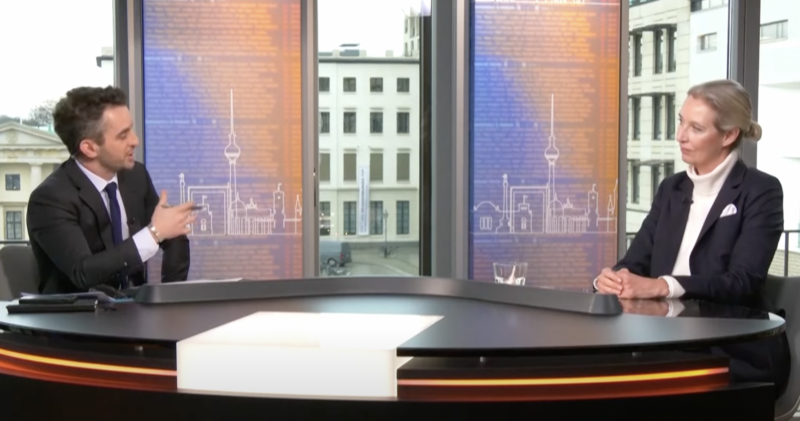Alice Weidel, co-leader of the Alternative for Germany (AfD), recently argued that EU member states should hold veto power over European Commission decisions.
Weidel, speaking to Bloomberg TV in Berlin on December 19, emphasized that the European Union needed fewer bureaucrats and more free trade, urging a shift toward a simple free trade zone. “All the bureaucrats—thousands of them—are eating up taxpayers’ money,” she said, adding that her party, which she described as “libertarian,” believes in a more streamlined and efficient EU structure.
This statement came after Weidel criticized the EU as “fundamentally wrong” in her stance on Germany’s future. In a video posted on Twitter/X, she argued that a “Dexit” (German exit from the EU) would not mean abandoning the single market. If a country leaves the EU, she explained, it should automatically enter into a free trade zone.
Weidel also expressed optimism about US President-elect Donald Trump’s upcoming term, particularly regarding his potential role in ending the war in Ukraine—something she claims EU members are “not willing or capable of doing.”
Separately, Weidel slammed the EU’s “socialist policymaking,” which she argued had harmed Germany’s automotive sector with its upcoming ban on internal combustion engine vehicles by 2035. The AfD’s draft election manifesto, shared with members ahead of a January conference, calls for Germany to exit the EU and form a new European community. This manifesto proposes a “transfer union” in place of Germany’s current EU membership.
Ahead of Germany’s snap elections on February 23, the AfD has consistently held second place in polls. A December 13-16 INSA poll put the AfD at 19.5%, just behind the CDU/CSU, which polled at 31.5%. This surge indicates that the AfD could soon become the country’s largest opposition party.
However, a November 2023 survey revealed that 87% of Germans, including 52% of AfD supporters, would still vote to remain in the EU. The AfD’s platform, first adopted in 2017, calls for a return to an EU based on economic cooperation among sovereign nations. If reforms within the EU fail, Weidel’s party supports a German exit or the democratic dissolution of the EU, followed by the creation of a new European economic union.




